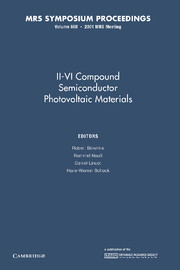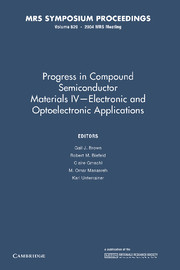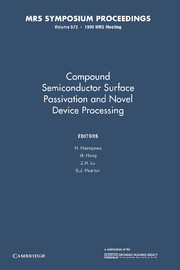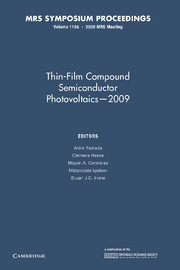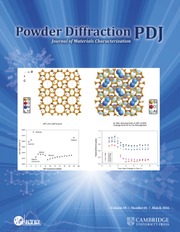II–IV Compound Semiconductor Photovoltaic Materials
This book focuses on materials issues related to Cu(In,Ga)(Se,S)2 and CdTe-based polycrystalline thin-film photovoltaic solar cells and related oxides and chalcogenides. Phase equilibrium and thermochemical kinetic aspects of the absorber layer formation of CdTe and Cu(In,Ga)(Se,S)2 are emphasized and several papers on micro-analytical analysis report on detailed structural properties of thin films. The use of flexible plastic or metal foil substrates as an alternative to glass is addressed in terms of solar-cell performance and limitations imposed by the nature of the substrates. Properties of defects and interfaces in CdTe and CIGSS are highlighted using electrical, optical, and micro-analytical tools. While film properties are correlated to device physics, controversy still exists on the detailed operation of both CdTe and CIGSS devices. Topics include: materials and synthesis; thin films on alternate substrates; defects; growth and junction formation; surfaces and interfaces and film and device characterization.
Product details
No date availablePaperback
9781107412217
600 pages
229 × 152 × 31 mm
0.79kg

